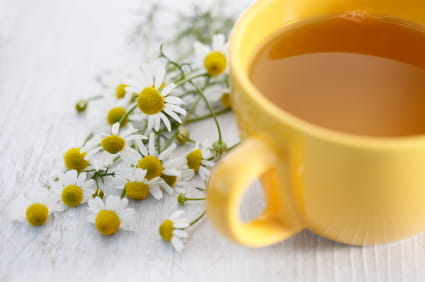Insomnia is habitual sleeplessness or the inability to sleep. Your insomnia is considered chronic if you cannot sleep adequately for 3 days per week and this has been going on for 3 months. Lack of sleep (including restless sleep, going to bed too late, getting up too early, and any other types of sleep deprivation), can throw your body’s hormones out of balance which in turn can cause weight gain and obesity related diseases in the long run.
1. Caffeine
It takes about 6 hours for caffeine to be fully processed and eliminated by your body. Do ensure that your last caffeinated drink of the day (coffee, black tea, chocolate, cocoa) is at LEAST 6 hours or more before your bedtime. If you are diagnosed with adrenal fatigue from lab hormone tests, you should reduce your daily caffeine intake.
If you love coffee, decaffeinated is the way to go, even though it still contains caffeine, it is of a lower dosage.
 2. Tart cherries:
2. Tart cherries:
Tart cherries (Montmorency) contain melatonin that can help you to sleep naturally.
It also contains antioxidants that fight joint pain, gout, and other inflammation related problems that keeps you awake at night.
3. For those on night or shift duties with irregular hours, this will affect your sleep. Do take melatonin supplements. However, DON'T overdose on melatonin supplements 1 mg will be adequate. Too high of a dose, (even 3 mg onwards) can disrupt your sleep cycle the following day, making it hard to wake up in the morning, and harder to fall asleep the following night, causing havoc your overall sleep cycle.
 4. Teas
4. Teas
Chamomile tea, mint tea, lemongrass tea are great night time teas that calms you down. Chamomile tea contains phytonutrients that can help fight estrogenic overload from all of the xenoestrogens that we are exposed to from chemicals, pesticides, in today's chemical laden world.
Insomnia can affect your ability to overcome stress and this build up will lead to depression.
5. Go for a medical check if you are chronically sleepless and check for adrenal fatigue or chronic fatigue syndrome.
6. Are you highly strung in the day? Being overly stressed out during the day can cause imbalances in your natural cortisol cycle makes you more awake at night and more tired in the morning.
Manage your stress:
- Do what you can control. Stop worrying about the things you can't.
- Dont give anyone permission to make you unhappy. You deserve better.
- +++Positivity works if you TRAIN yourself to think positive. So quit thinking negative at any time and all times.
The Rubber band negativity de-inforcement Trick:
Put on a rubber band on your wrist. Pull it and slap it on your wrist everytime you think negative. That way you will train yourself to stop thinking negative.
- never think that grass is greener on the other side. They are thinking the same of us. So in actual fact, grasses are greener on all pitches:-)
- live YOUR life. Dont live others'.
Manage your stress:
- Do what you can control. Stop worrying about the things you can't.
- Dont give anyone permission to make you unhappy. You deserve better.
- +++Positivity works if you TRAIN yourself to think positive. So quit thinking negative at any time and all times.
The Rubber band negativity de-inforcement Trick:
Put on a rubber band on your wrist. Pull it and slap it on your wrist everytime you think negative. That way you will train yourself to stop thinking negative.
- never think that grass is greener on the other side. They are thinking the same of us. So in actual fact, grasses are greener on all pitches:-)
- live YOUR life. Dont live others'.
7. Exercise to sleep. Exercise increased total sleep time and delayed REM sleep onset (10 min), increased slow-wave sleep (SWS) and reduced REM sleep (2–5 min. REM sleep restores your brain and is extremely important for your learning as well as your memory.
The next sleep phase in your night is the deep sleep. The body enters deep sleep from a half hour to 45 minutes after falling asleep. Unlike REM, deep sleep is known for the changes in your body rather than your brain. Your breathing slows and your heartbeat is regular during this stage. The muscles in your body completely relaxes and you will sleep through any external sleep distractions such as loud noises. Deep sleep is extremely important to overall health because it is during this phase that the body naturally heals itself. Your body replaces cells, heals wounds, and builds muscle tissue, all while you’re sound asleep. Deep sleep helps to boost immune function, support cardiac health, and control stress and anxiety.
- Stretches can be done anytime throughout the day.
- Do your cardio exercises such as running, swimming, briskwalking preferably in the morning. It increases good sleep. An early morning cardio sweat session may provide the ideal blood pressure reduction and maximize deep sleep, compared with midday or evening workouts.
- Do your weights or resistance at any time of the day.
- And remember to end every exercise with The 12 Stretches (see Point 8)
- Don't exercise hard (eg. high intensity interval trainings) near bedtime. Exercising intensely too close to bed may lead to interrupted sleep due to the high heart rates or the recovery heart rates time you need to stabilise your heart rate for deep sleep.
8. Relaxers that works. Do the 12 stretches for 10 seconds for each move. Breathe gently. Do not hold your breathe. Doing this every night will relaxe your muscles and joints. This is a good ritual to prepare your body for sleep nightly.
9. Mindfulness meditation can be practised in the day or night. Mindfullness simply needs you pay to close attention to your experience and your environment.
- Focus on your breath and let distractions arise and pass by like clouds in the sky. Check in with your body, noticing tensions and releasing them by squeezing your fingers and toes, all the while breathing deeply through your rib cage and noticing your breath.
10. Breathing
In the Papworth method, you focus on your diaphragm to breathe more naturally.
- Sit up straight or lay supine.
- Take deep, methodical breaths in and out, counting to 4 with each inhale — through your nose — and each exhale, which should be through your nose.
- Focus on your abdomen rising and falling, and listen for your breath sounds to come from your stomach.
Sleep serves energy conservation, body restoration and improved thermoregulatory functions. Your health starts with a good sleep. So does your daily performance in ensuring quality of life. So ensure that shut-eye nightly!
Yours always in good health and happiness,
Dr Dee Dee
Dr Dee Dee Mahmood (PhD), is the Regional Head, Regional Alumni Ambassador Network and Associate Senior Lecturer at Edith Cowan University Australia. This multi award winning TEDx Speaker, Celebrity Exercise Physiologist, Nutritionist and Talk Show Host is much celebrated for her numerous community health initiatives. Her PhD research on obesity was chosen for its impact on obesity in Asia and was accepted and presented at the President's Cup Award, American College of Sports Medicine Northwest Annual Meeting in Tacoma, Washington. Ambassadors to brands like Reebok, Norwegian Seafood Council, Dr Dee Dee has several signature community programs to her name: Fat2Fit Asia and Walking Football for Health Asia. She is the Director, Walking Football Associations (WFA), The National Governing Body England and Federation of International Walking Football Associations (FIWFA) , United Kingdom. She conducts synergy on community and corporate health and research collaborations internationally. Click here:
http://iamdeedeemahmood.blogspot.sg/2017/10/i-am-dee-dee-mahmood.html



